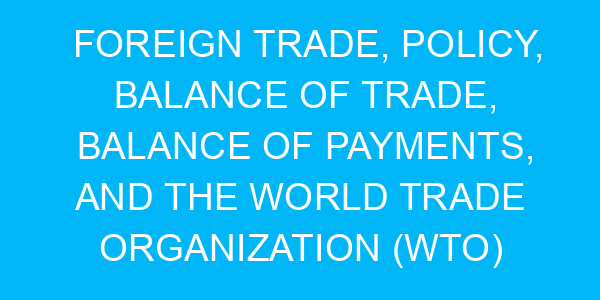66. The term “dumping” refers to the practice of:
a) Selling goods in the domestic market at a lower price than in the international market
b) Imposing import tariffs on foreign goods
c) Providing subsidies to domestic industries
d) Granting preferential treatment to certain trading partners
67. The “Most-Favored-Nation” (MFN) principle of the WTO means that:
a) Countries should prioritize trade with their closest neighbors
b) Developed countries should receive preferential treatment in trade
c) All member countries should be treated equally in trade
d) Trade barriers should be imposed on certain countries
68. Which of the following is an example of a trade remedy measure?
a) Export promotion subsidies
b) Import tariffs
c) Regional trade agreements
d) Bilateral investment treaties
69. The concept of “trade deficit” refers to a situation where:
a) Exports exceed imports
b) Imports exceed exports
c) The balance of trade is zero
d) The balance of payments is positive
70. The Agreement on Trade-Related Aspects of Intellectual Property Rights (TRIPS) aims to:
a) Promote fair trade practices
b) Protect intellectual property rights in international trade
c) Eliminate trade barriers for developing countries
d) Regulate competition in the global market




